Publications
Articles, publications, books, tools and multimedia features from the U.S. Institute of Peace provide the latest news, analysis, research findings, practitioner guides and reports, all related to the conflict zones and issues that are at the center of the Institute’s work to prevent and reduce violent conflict.
Question And Answer
Blinken’s China Trip Shows Both Sides Want to Stabilize Ties

Taking Stock: Analytic Tools for Understanding and Designing P/CVE Programs
This report examines the various analytic tools that have been developed to understand the causes and dynamics of radicalization and violent extremism. The report assesses the strengths and limitations of these tools in informing the design of P/CVE interventions. It considers micro- and macro-level frameworks and models, and the various contexts in which they may be relevant.
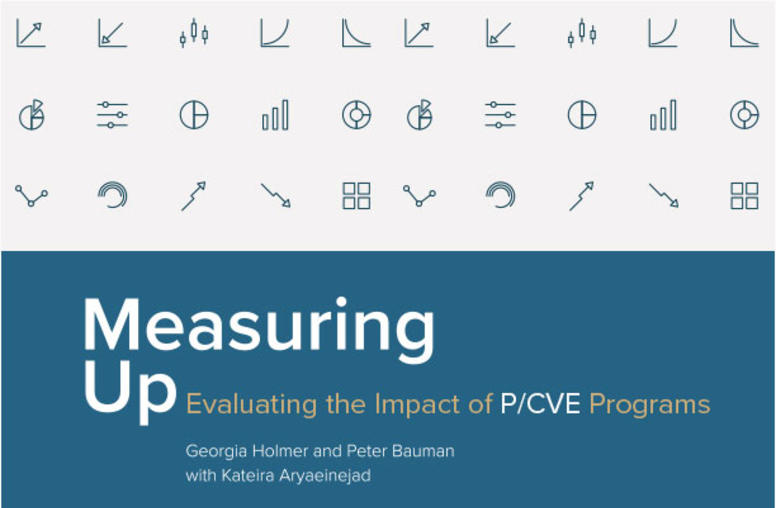
Measuring Up: Monitoring and Evaluating P/CVE Programs
This report considers the various conceptual and practical challenges in measuring the impact and value of programs designed to prevent and counter violent extremism (P/CVE). It examines potential solutions and emphasizes the significance of efforts to assess changes in attitudes, behaviors, and relationships.
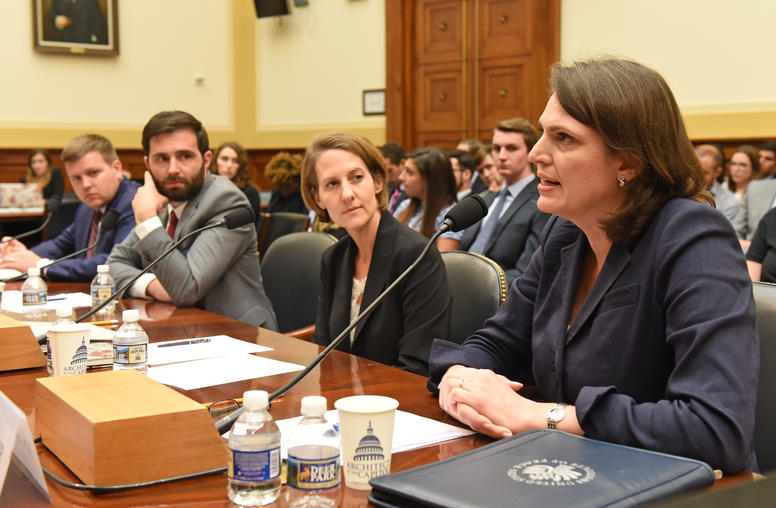
Allies Under Attack: The Terrorist Threat to Europe
USIP Director of Countering Violent Extremism Georgia Holmer testimony before the House Foreign Affairs Subcommittee on Terrorism, Nonproliferation and Trade & Subcommittee on Europe, Eurasia, and Emerging Threats.
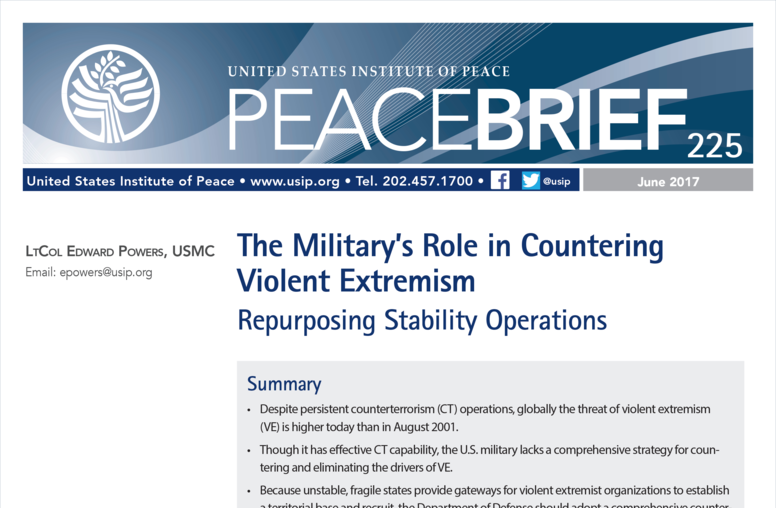
The Military’s Role in Countering Violent Extremism
The U.S. military, through its stabilizing mission, has a role to play in countering and eliminating the drivers of violent extremism (VE). Though the military has effective counterterrorism (CT) capability, there is a gap in its counter-VE (CVE) strategies that can be closed by linking reactive CT operations to preventative efforts to remove the drivers of VE. ...
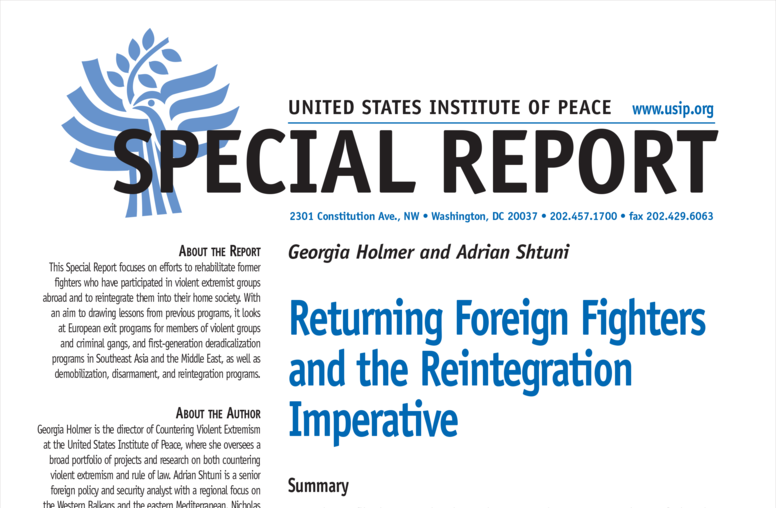
Returning Foreign Fighters and the Reintegration Imperative
This report aims to help policymakers and practitioners navigate the challenges of developing effective programs to rehabilitate and reintegrate foreign fighters returning from Syria and Iraq into their societies. Ultimately, holistic and comprehensive reintegration efforts designed to transition returnees address not only their needs, but also those of the entire society, and are critical in building more resilient and safer communities.
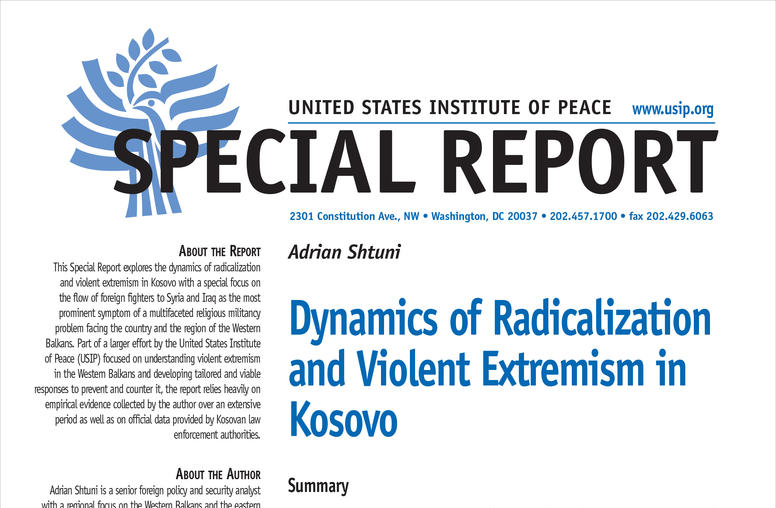
Dynamics of Radicalization and Violent Extremism in Kosovo
Relying in large part on primary empirical evidence, this report explores the dynamics of violent extremism in Kosovo and the disproportionately high number of radicalized fighters from the region in Syria and Iraq. Examining the historic, cultural, geopolitical, and socioeconomic factors behind the phenomenon, it focuses on the flow as a symptom of a larger religious militancy problem within the country and offers recommendations on countering that challenge.
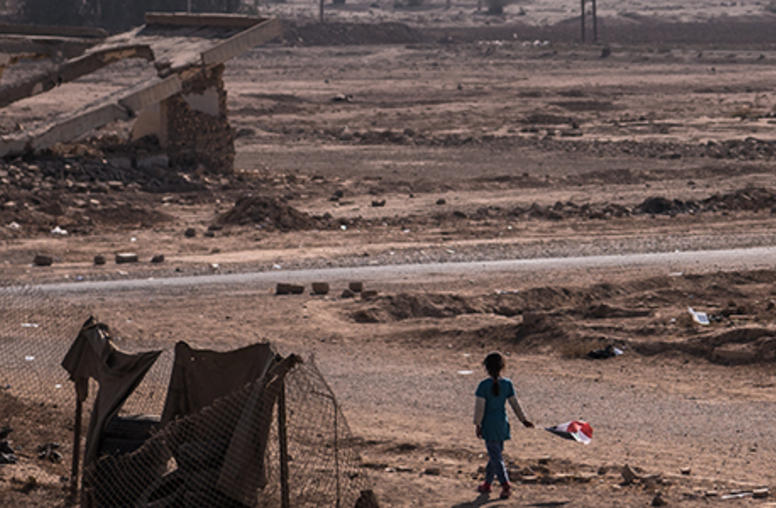
From ISIS to Al-Qaida: The Changing Extremist Threat
The Islamic State may be crumbling across Iraq, but the future prospects of violent extremist groups are far from fading. While ISIS rampaged across Iraq and Syria in 2014, setting up a terror-based regime to impose its will, a revitalized al-Qaida was taking a different, more sustainable approach by grafting itself onto local extremist groups, experts said in a forum at the U.S. Institute of Peace that also examined community approaches to preventing and countering violent extremism. Al-Qaid...
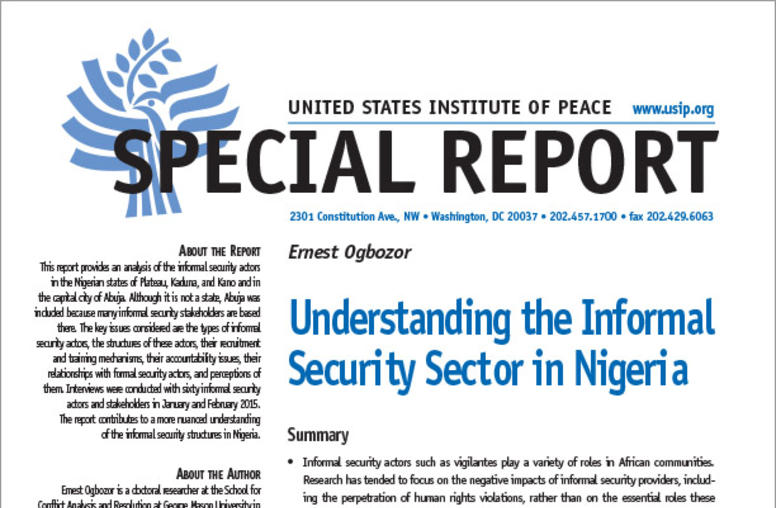
Understanding the Informal Security Sector in Nigeria
Informal security actors such as vigilantes play a variety of roles in African communities. Research has tended to focus on the negative impact of informal security providers, but these groups have an essential role in a community’s safety and security. This report provides an analysis of the informal security actors in the Nigerian states of Plateau, Kaduna, and Kano and in the capital city of Abuja.
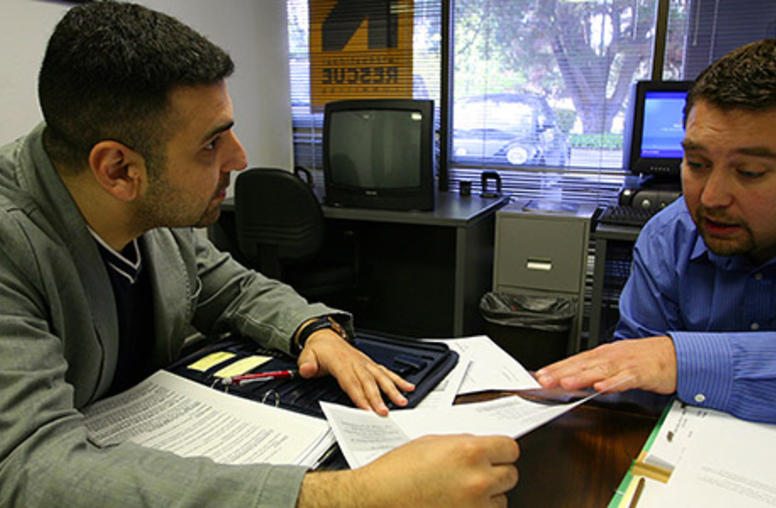
Panel Urges New View of Middle East Refugees
The refugee crisis that has spread to Europe and the breakdown of the Middle East’s century-old political order demand new thinking about the economic role of displaced people and a reassessment of donor strategies to rebuild societies in conflict, a working group convened by the U.S. Institute of Peace concluded. The panel’s report, developed under USIP’s Manal Omar and Elie Abouaoun as part of Atlantic Council’s Middle East Strategy Task Force, calls for refugees to be viewed as potential e...
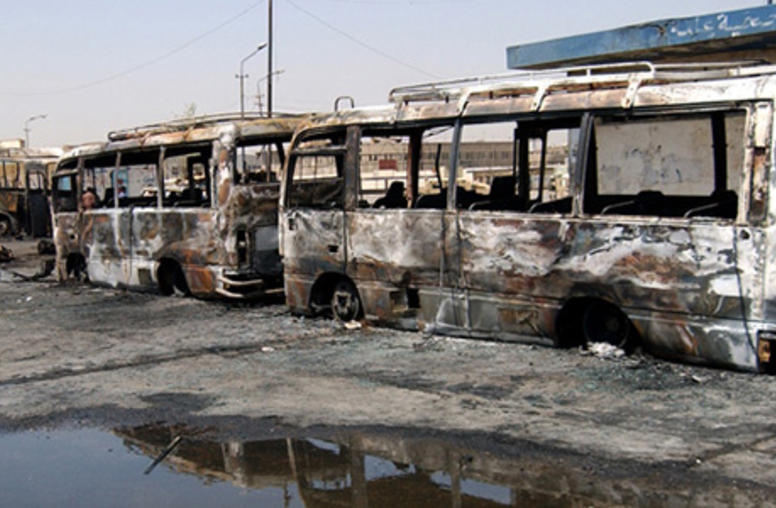
Terrorism Study: ISIS Isn’t the Deadliest Extremist Group
Worldwide deaths from terrorist incidents jumped 80 percent in 2014 compared with the year before and were concentrated in five major conflict zones, according to the third annual Global Terrorism Index, released November 17. While that conclusion was unsurprising, the index included less obvious findings with implications for policy makers who have to tailor solutions to specific countries and regions, according to experts who discussed the study at the U.S. Institute of Peace.